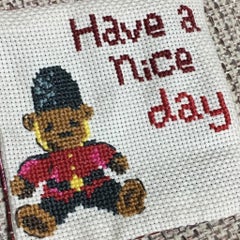‘An Irish busker (Glen Hansard, the Frames and The Commitments) meets a Czech flower seller (Markéta Irglová) while singing on the streets of Dublin. (In the credits, they're listed as Guy and Girl.) She likes what she hears and lets him know. Turns out she's a musician, too. They work on a few songs together and a friendship is forged. She lives with her widowed mother, who doesn't speak English. He lives with his widowed father, who owns a repair shop. Since he broke up with his girlfriend, the guy has been drifting, unable and unwilling to get his life in order. The girl encourages him to pursue a record deal, and the guy emerges from his funk. Then he makes a move on the girl, who rejects his advances. He's confused, but as he comes to find, there's a reason she's keeping her distance.’ (Excerpted from Amazon.co.uk)
I hated La La Land because nothing really happens in the end between the hero and the heroine. Funnily enough, I absolutely loved Once for the exact same reason. (Only, the leading people are better described just a guy and a girl instead of a hero/heroine really.) Why?
In terms of the story outline and the character, Once and La La Land are similar at least on the surface. The hero and the heroine are not satisfied with their lives, being unable to make an action in relationships or career-wise, and the two people get to know each other through some sort of musical pursuits, but their romance has a happy-sad ending.
I remember watching La La Land with such an expectation. After doing so, my first instinct was to hate it, which I did. In fact, I was utterly disappointed at its emptiness. I think it was because the leading people, Mia and Sebastian, seemed to be rushing through life, always looking ahead, just dreaming. Well, it is hard to explain this emptiness. I just did not feel any emotional attachment to them to be honest. The film seemed to be trying to gloss over the emptiness of its story and flat characters with its cool dancing and the glamour of L.A. whether it was intentional or not. It felt almost metafictional in the sense that the superficiality constantly reminded me of its fictionality. (Trying in vain to sound like a critic here.) I’m sure the award-winning film has much to offer experienced critics if analysed closely, but I could not care less about the couple. I was just hoping for a big plot twist to make up for its boringness. (I loved the music itself though. It was almost too gorgeous.)
As I saw Once, I found myself hoping, ‘Don’t spoil the entire thing with a sudden car crash or with the all too familiar end-of-film running of leading actors, please. (Does that even make sense though? I hope it does. Is there any specific name for those actor-running scenes like, say, in Love Actually, where the kid runs at the airport to say goodbye to the girl he likes?)’ Thank God, the film didn’t fail me. It certainly has a slightly cheesy romantic touch to it, which is brilliant because the grimness of their impoverished situations and the deglamourised picture of Dublin balance it out. And their music was so good. The Guy had the softest voice and the Girl the most poignant. Of course, it has now become my No.1 Spotify playlist.
Admittedly, any work of fiction is not about just one thing. Still, to me, Once is about being in the moment, the once-in-a-lifetime moment. Those moments do not necessarily have to be meaningful because that is what it is, being in the moment. Watching them absorbed in music and their togetherness gave me such a warm fuzzy feeling.
Once is now one of my favourite films watched this year, or even in my lifetime.

